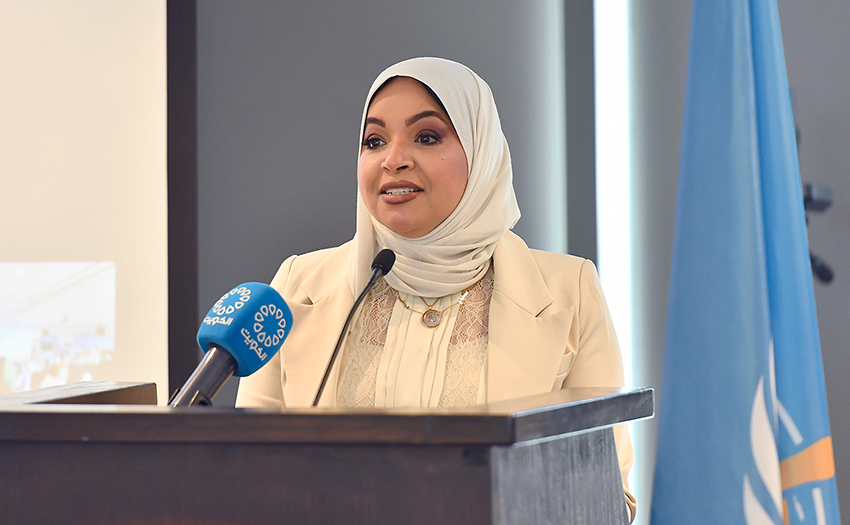05/10/2022
05/10/2022
KUWAIT CITY, Oct 5: The drop in natural breastfeeding rates in Kuwait evokes a real need to boost cooperation between various sectors of the country to support the best nutrition offered for infants, World Health Organization (WHO) Representative Assad Hafeez said on Wednesday.

He made these remarks in a speech he gave during a session organized by WHO Country Office in Kuwait in cooperation with Public Authority (PAFN) and Ministry of Health regarding the initiative of appropriate hospitals for children at United Nations House (UN).
WHO previously launched an initiative for infants-friendly hospitals, in cooperation with United Nations Children's Fund (UNICEF) back in 1991, aiming to guarantee both mothers and children receive the required care at the appropriate timing before living in a residence-offering mothers and infants care and proper nutrition, he said.
This initiative protects, encourages and supports natural breastfeeding, regarding its great importance and also offers appropriate care and nutrition to infants not receiving natural breastfeeding, he added.
The National Food Surveillance Report's statistics indicated that investing in good nutrition in early childhood has a great positive impact on health, academic achievement and productivity in people's lives, Ministry of Health Assistant Undersecretary for special Medical Care Services Dr. Fatma Al-Najjar affirmed.
Director of Community Nutrition Promotion at PAFN Dr. Mona Al-Sumaie listed the specialties of the Kuwait Breastfeeding Promotion, and its vital role in boosting partnerships between the public and private sectors, to enhance the infants and children nutrition in all parts of the country.
Only eight percent of newly born babies are breast fed for six months in Kuwait, a Ministry of Health official disclosed on Wednesday. Dr. Fatma Al-Najjar, an assistant undersecretary at the Ministry of Health, said in remarks to KUNA that figures in the national nutrition monitoring report revealed that only eight percent of the infants get the natural feeding for six consecutive months in their infancy.
She was speaking on sidelines of a seminar organized by WHO Country Office in Kuwait, in cooperation with the Public Authority for Food and Nutrition (PAFN) and the Ministry of Health, regarding the initiative of appropriate hospitals for children. The eight proportion is much lower than the rates in other regional countries as well as at the global level, Dr. Al-Najjar said, warning that babies must be fed solely with mothers' milk. She also revealed that only 20 percent of the babies born in Kuwait are hosted in "babies' friendly hospitals." There are only two of such hospitals in the country, she added (KUNA)


